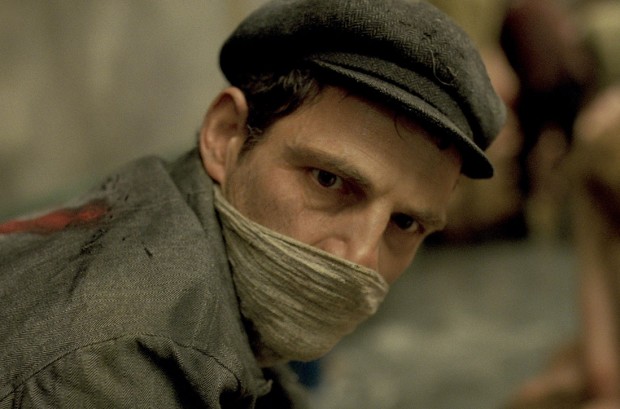
After nearly two weeks of viewing some of the best cinema will have to offer this year, the 68th Cannes Film Festival has concluded. With Jacques Audiard‘s Dheepan taking the top jury prize of Palme d’Or (full list of winners here), we’ve set out to wrap up our experience with our 10 favorite films from the festival, which extends to the Un Certain Regard and Directors’ Fortnight side bars.
It should be noted that Mad Max: Fury Road and Inside Out, which both screened out of competition, were among some of our favorites of the festival, but considering they’ll be getting enough attention thanks to their marketing campaigns and wide release, we’ve elected to give room to other titles. Check out our top 10 films below, followed by the rest of the reviews and all of our features. One can also return in the coming months as we learn of hopeful distribution news for all of the mentioned films.
Arabian Nights (Miguel Gomes)

Miguel Gomes’ Our Beloved Month of August and its ecstatically received follow-up Tabu showcased the director’s love of storytelling as a means of contemplating reality. In these films, by whimsically intermingling and reinventing cinematic traditions as well as throwing in an abundance of personal innovations, Gomes wove tales that reflected on defining aspects of Portuguese culture with irresistible idiosyncrasy. The six-hour triptych Arabian Nights continues in the same vein, though with far greater ambition. Fascinating even in its misfires, this sprawling and fantastical document of the country’s plight in the wake of the global financial crisis confirms Gomes as one of the most exhilaratingly inventive filmmakers working today. – Giovanni C. (full review)
The Assassin (Hou Hsiao-Hsien)

The Cannes Film Festival represents the pantheon of arthouse cinema, so it does raise eyebrows when a wuxia movie is included in its official selection. After all, this is a genre known for superhuman speed and loud, physical forms of expression, stuff that fantasies are made of but not exactly traits one associates with fine arts. That’s until Taiwanese maestro Hou Hsiao-Hsien came along to deliver his version of kung fu. The resulting The Assassin (translated from Nie Yinniang) turns out to be the quietest, most introspective and deliberately-paced film in competition, a feat so rare and radical it casually revolutionized decades of filmmaking tradition. – Zhuo-Ning S. (full review)
Carol (Todd Haynes)

To be an actress and land a leading role in a Todd Haynes film must be a dream come true. With Safe, Far From Heaven, and his five-part miniseries Mildred Pierce, Haynes has proven himself to be one of the very few male directors not only interested in but capable of endowing women protagonists with genuine and far-reaching complexity. In doing so, the performances he’s drawn from his actresses – Julianne Moore in the first two titles and Kate Winslet in the lattermost – have been amongst the very finest of their careers. These virtues are again masterfully exhibited in Carol, his sublime adaptation of Patricia Highsmith’s 1952 novel The Price of Salt. – Giovanni M.C. (full review)
The Chosen Ones (David Pablos)

It is difficult to equitably handle and deal with particular subject matter in a film without feeling exploitative. Yet David Pablos has managed to walk this fine line with his new film The Chosen Ones, which sensitively deals with the issue of forced-prostitution and sexual slavery. The drama follows a young boy Ulises (Oscar Torres) who is from a family whose patriarch is heavily involved in human trafficking. His father and older brother both lure women into prostitution by seducing them and then threatening their families and loved ones if they don’t agree to “work” for them. Ulises’ first victim is a 14-year-old girl named Sofia (Nancy Talamantes) but he is still relatively innocent and thus, when it is too late, he attempts to help Sofia. His father offers him a proposition that if he can find another girl to replace Sofia with he will let her go. – Raphael D. (full review)
Dheepan (Jacques Audiard)

Until losing its cool in the third act and ending on a relatively soft note, French veteran Jacques Audiard‘s Dheepan is a muscularly directed dramatic thriller about the difficulties of starting over and the inevitability of violence. Clear-eyed, tightly wound, and cinematically and psychologically immersive, it’s a furious ride of a movie that actually has something to say.- Zhuo-Ning S. (full review)
In the Shadow of Women (Philippe Garrel)

While fitting snugly in the overall cohesiveness of Philippe Garrel’s filmography, In the Shadow of Women nevertheless feels like a companion piece to its predecessor, the 2013 critical hit Jealousy. Garrel’s latest is also shot in black-and-white, kept within a similarly svelte running time (73 minutes), and its pared-down story of marital infidelity again takes the jealousy intrinsic to adult relationships as its primary theme. In the Shadow of Women revolves around Pierre (Stanislas Merhar) and Manon (Clotilde Courau), a married couple living in a run-down Parisian apartment and struggling along as documentary filmmakers. The strain in their relationship is apparent from the outset and both soon embark on individual affairs. The contrast in their respective motivations – Pierre’s is physical; Manon’s is emotional – and reactions upon learning of the other’s unfaithfulness – Manon is understanding; Pierre is seething – lays bare the asymmetries in their marriage, forcing a confrontation with truths hitherto swept under the carpet. – Giovanni M.C. (full review)
The Lobster (Yorgos Lanthimos)

The eminently idiosyncratic films of Yorgos Lanthimos revile the societal constructs that stifle and pervert human interaction. In laying bare these structures’ inherent hypocrisies, the films exaggerate their logic to absurd extremes, with conformity’s noxious ramifications always at the crux of Lanthimos’ critique. His exceptional breakthrough Dogtooth eviscerated the institution of the modern family, representing it as emblematic of society’s greater normative oppression. Dogtooth’s similarly incisive yet less warmly received follow-up Alps exposed the pretence fundamental to the forming of social identity. His newest film, The Lobster, takes on the rigid preconceptions surrounding relationships. – Giovanni M.C. (full review)
Macbeth (Justin Kurzel)

Justin Kurzel’s phenomenal debut, Snowtown, portrayed the most notorious serial killings in Australian history, the Snowtown Murders. Though nigh traumatizing in its graphic depictions of extreme brutality, the film’s investigation into the psychology of its characters – the charismatic psychopath John Bunting and the maladjusted teenager James Vlassakis who finds refuge in Bunting’s murderous group – achieved a highly effective appraisal of the dynamics of corruption that can abet violence. Consequently, it’s not surprising that in adapting a Shakespeare play as his second feature Kurzel chose Macbeth. The director approaches the classic tale of murder and moral decline with the same level of visceral stylization that distinguished his debut, pulling off perhaps the fiercest cinematic translation of Shakespeare to date. – Giovanni M.C. (full review)
Mountains May Depart (Jia Zhangke)

Though vastly more moderate than its predecessor, the ultra-violent A Touch of Sin, Jia Zhangke’s Mountains May Depart continues the director’s move away from the extremely measured, observational style that characterized much of his earlier work. Even as his narratives have become more charged, however, Jia’s thematic focus has remained constant and Mountains May Depart offers his latest reflection on the momentous societal changes that have swept over China as a result of its entry and ascension in the globalized world economy. If A Touch of Sin expressed Jia’s rage at the contemporary impact of capitalist progress on Chinese society, Mountains May Depart is his lament over the direction in which it is headed. – Giovanni M.C. (full review)
Son of Saul (László Nemes)

László Nemes‘ prodigious debut feature, Son of Saul, inhabits what Primo Levi called “The Gray Zone” in his essay of the same name: the reality of the Sonderkommando, concentration camp inmates who bought themselves improved chances of survival by operating the Nazis’ crematoria. In discussing these inmates’ choice, Levi warns the reader against casting judgment – this caution is addressed not only to those who never experienced the horror of the camps, but also to those who survived it. Levi argues that for the victims, the Holocaust had its own exceptional set of rules that applied differently to every individual. Consequently, the vital endeavor to understand genocide cannot discredit the experience of those who made such decisions within that system. Nemes, whether directly or not, took Levi’s advice to heart. By approaching his material through a purely experiential style that purposely eschews psychology, he has crafted a towering landmark for filmic fictionalizations of the Holocaust. – Giovanni M.C. (full review)
The Rest

Mad Max: Fury Road (A-)
Inside Out (A-)
The Treasure (A-)
Amy (B+)
An (B+)
The Hereafter (B+)
Standing Tall (B+)
Dope (B)
The Measure of a Man (B)
Mustang (B)
Rams (B)
Shameless (B)
Sicario (B)
Tale of Tales (B-)
Green Room (C+)
Louder Than Bombs (C+)
Youth (C+)
Irrational Man (C)
Our Little Sister (C)
Love (C-)
The Sea of Trees (D)
Features
Todd Haynes, Cate Blanchett and Rooney Mara Discuss Creating Carol at Cannes
Denis Villeneuve and Cast Talk the Inspirations and Ideology of Sicario at Cannes
Gaspar Noé and Cast Discuss Making Love, the Use of 3D, and More at Cannes
Michael Fassbender, Marion Cotillard, and Justin Kurzel Discuss Making Macbeth at Cannes
Jacques Audiard on His Palme d’Or Winner Dheepan, Representing Sri Lankans, and More
The Leads of Dheepan Discuss Real-Life Experiences, Soulfully Demanding Scenes, and More
Hou Hsiao-hsien Discusses the Authenticity and Beauty of The Assassin
Mountains May Depart Lead Zhao Tao on Spanning Decades, Working With Jia Zhangke, and More
Jia Zhangke Discusses the Intimacy and Life Lessons of Mountains May Depart
Thanks for reading! See our complete coverage below, including trailers, clips, news, and more and the closing press conference above.











